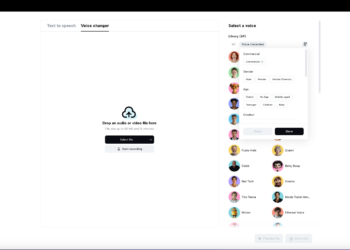Imagine having a personal data center custom-built to meet your organization’s specific needs. That’s essentially what a private cloud solution offers. It’s a cloud computing environment designed for your exclusive use, providing you with a high level of control, security, and compliance.
Public cloud services, while convenient and scalable, might not be ideal for every situation. If you handle sensitive data or have strict regulatory requirements, a private cloud might be the better option. So, how exactly does a private cloud work, and what are the benefits of using one?
Unmatched Security in a Private Cloud
Consider a state-of-the-art vault safeguarding your most sensitive information. That’s the essence of a private cloud’s security posture. With cloud solutions from providers like Elevated Networks, you have complete control over the entire infrastructure, allowing you to craft a multi-layered security defense that meets your organization’s exact requirements. This allows for:
Granular Access Control
You decide who gets in and what they can see. You can set up user permissions down to the most minute detail, ensuring only authorized personnel have access to specific data sets, applications, or functionalities. This minimizes the risk of human error or malicious intent compromising your sensitive information.
Enhanced Network Segmentation
Your private cloud operates on a separate network, isolated from public internet traffic. This creates an additional barrier to entry for unauthorized users or malware attempting to infiltrate your system. By segmenting the network further, you can create secure zones for different departments or applications, adding another layer of protection for critical data.
Robust Data Encryption
At rest and in transit, your data remains shielded with industry-standard encryption protocols. Even if someone manages to breach the outer defenses of your private cloud, they’ll be confronted with an impenetrable wall of encryption. This ensures that even if unauthorized actors gain access to your data, they won’t be able to decrypt or understand it.

The combination of granular access control, enhanced network segmentation, and robust data encryption makes a private cloud an unmatched solution for securing your most sensitive information.
Meeting Regulatory Demands with Ease
Regulatory compliance is a constant concern for many businesses. With a private cloud, you have the peace of mind of knowing you can meet even the most stringent regulations. Here’s how:
Data Residency
You have complete control over the physical location of your data storage. This is crucial for adhering to regulations that mandate data residency within specific geographic boundaries. For example, regulations in the healthcare industry (HIPAA) or finance (PCI DSS) often require data to be stored within specific regions or countries. By hosting your private cloud on-premises or with a provider that offers data centers in compliant locations, you can ensure your data stays within the required geographical boundaries.
Auditability and Traceability
Since you manage the entire environment, you can easily track all data access and activity. This detailed audit log becomes invaluable for demonstrating compliance with regulations that require comprehensive record-keeping. With a private cloud, you have full control over the audit trails, allowing you to generate reports that demonstrate compliance with these regulations.
By leveraging a private cloud, you can ensure your business meets regulatory requirements with ease and maintains the highest standards of data security and compliance.
Additional Advantages of a Private Cloud
While security and compliance are undeniable strengths, a private cloud offers a range of other benefits:
Performance and Scalability
Dedicated resources solely for your organization lead to consistently high performance. You can quickly scale resources up or down to meet changing demands, ensuring your applications run smoothly even during peak usage times.
Customization
You have complete control over the entire infrastructure, allowing you to configure it to perfectly suit your unique business needs and applications. This means you can optimize your cloud environment for specific workloads, maximizing performance and efficiency.
Integration with Existing Infrastructure
A private cloud can seamlessly integrate with your existing on-premises IT systems, creating a unified and efficient environment. This eliminates the need to rip and replace your existing infrastructure, saving you time and money. Additionally, it simplifies data management and streamlines workflows for your users.
A private cloud not only enhances security and compliance but also provides superior performance, customization, and seamless integration with existing systems.
Is a Private Cloud Right for You?
While private clouds offer significant security and compliance advantages, they’re not a one-size-fits-all solution. Here are some factors to consider:
IT Expertise
Managing a private cloud requires a certain level of IT expertise to handle tasks like configuration, maintenance, and troubleshooting. If your organization lacks in-house skills, you might need to consider managing private cloud services offered by cloud providers. These services can alleviate the burden on your IT staff by providing expert management of your private cloud infrastructure.
Cost
Setting up and maintaining a private cloud can be expensive compared to public cloud solutions. There are upfront costs for hardware, software, and IT staff, as well as ongoing maintenance expenses. However, the long-term cost may be lower for organizations with high security and compliance needs, especially if they have consistently high resource usage. Public cloud pricing models can be unpredictable, and costs can add up quickly with high usage.
Scalability Needs
If your organization’s resource needs are highly variable, a public cloud might be a better fit. Public clouds offer virtually limitless scalability, allowing you to easily spin up or down resources as needed. Compared to other cloud solutions, private clouds can still offer some level of scalability. You can add additional hardware to your on-premises infrastructure to scale up or consider a hybrid cloud approach that leverages both public and private cloud resources.

The choice between private and public clouds depends on your organization’s specific needs, including IT expertise, budget, and scalability requirements. Weighing these factors can help determine the best fit for your cloud strategy.
Conclusion
Understanding the benefits, considerations, and future trends of private cloud solutions can help you make an informed decision about whether this approach is the right fit for your organization’s needs. In today’s data-driven world, having a secure and compliant platform for storing and managing your critical information is more important than ever. A private cloud solution might just be the key to unlocking your organization’s full potential.














































































































